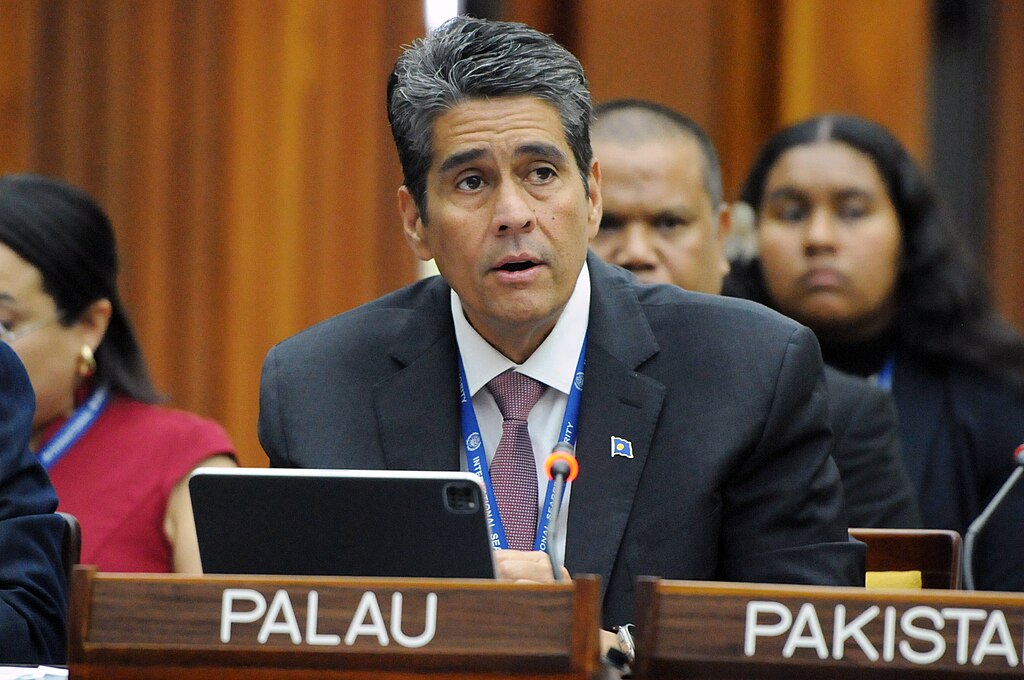Overview of Palau's Presidential Election
Palau, a Pacific Islands nation vital to U.S. military interests amid rising tensions with China, is holding a national presidential election on Tuesday. President Surangel Whipps Jr. is vying for reelection against his brother-in-law, former president Tommy Remengesau, who actively campaigned by engaging with voters at traffic intersections on Monday.
Key Election Issues
In addition to choosing the president, voters will elect 13 members to the national senate. This election is particularly significant as Palau recently renewed its Compact of Free Association with the U.S., receiving $890 million in economic aid over 20 years in exchange for continued U.S. military access to its territory.
Tax reform has become a central issue, with Remengesau criticizing the current tax structure for favoring large businesses. He has proposed tax incentives aimed at supporting small businesses.
Foreign Relations and Security Concerns
Palau, with a population of 18,000, is strategically located between the Philippines and Guam. The U.S. is currently constructing an over-the-horizon radar system on the island, scheduled for completion in 2026. Palau maintains diplomatic ties with Taiwan, one of only 12 nations to do so. In response to China’s recent actions, including a travel ban on tourists to Palau, Whipps has highlighted the importance of strengthening alliances with Japan and Australia, which now offer direct flights to the island.
Media Freedom and Controversies
The election has also raised concerns about media freedom, following a defamation lawsuit against the Island Times newspaper by Surangel and Sons Co., owned by Whipps family. The lawsuit accuses the paper of spreading unverified social media claims regarding tax payments.
Remengesau emphasized the need to protect Palau's identity from foreign influences during his campaign, although his team did not clarify what those influences were.



 Japanese Pharmaceutical Stocks Slide as TrumpRx.gov Launch Sparks Market Concerns
Japanese Pharmaceutical Stocks Slide as TrumpRx.gov Launch Sparks Market Concerns  Dollar Steadies Ahead of ECB and BoE Decisions as Markets Turn Risk-Off
Dollar Steadies Ahead of ECB and BoE Decisions as Markets Turn Risk-Off  Fed Governor Lisa Cook Warns Inflation Risks Remain as Rates Stay Steady
Fed Governor Lisa Cook Warns Inflation Risks Remain as Rates Stay Steady  Japan Economy Poised for Q4 2025 Growth as Investment and Consumption Hold Firm
Japan Economy Poised for Q4 2025 Growth as Investment and Consumption Hold Firm  Trump Endorses Japan’s Sanae Takaichi Ahead of Crucial Election Amid Market and China Tensions
Trump Endorses Japan’s Sanae Takaichi Ahead of Crucial Election Amid Market and China Tensions  Gold Prices Slide Below $5,000 as Strong Dollar and Central Bank Outlook Weigh on Metals
Gold Prices Slide Below $5,000 as Strong Dollar and Central Bank Outlook Weigh on Metals  Global Markets Slide as AI, Crypto, and Precious Metals Face Heightened Volatility
Global Markets Slide as AI, Crypto, and Precious Metals Face Heightened Volatility  U.S.-India Trade Framework Signals Major Shift in Tariffs, Energy, and Supply Chains
U.S.-India Trade Framework Signals Major Shift in Tariffs, Energy, and Supply Chains  South Korea’s Weak Won Struggles as Retail Investors Pour Money Into U.S. Stocks
South Korea’s Weak Won Struggles as Retail Investors Pour Money Into U.S. Stocks  South Korea Assures U.S. on Trade Deal Commitments Amid Tariff Concerns
South Korea Assures U.S. on Trade Deal Commitments Amid Tariff Concerns  U.S. Stock Futures Edge Higher as Tech Rout Deepens on AI Concerns and Earnings
U.S. Stock Futures Edge Higher as Tech Rout Deepens on AI Concerns and Earnings  Asian Stocks Slip as Tech Rout Deepens, Japan Steadies Ahead of Election
Asian Stocks Slip as Tech Rout Deepens, Japan Steadies Ahead of Election  Silver Prices Plunge in Asian Trade as Dollar Strength Triggers Fresh Precious Metals Sell-Off
Silver Prices Plunge in Asian Trade as Dollar Strength Triggers Fresh Precious Metals Sell-Off  China Extends Gold Buying Streak as Reserves Surge Despite Volatile Prices
China Extends Gold Buying Streak as Reserves Surge Despite Volatile Prices  RBI Holds Repo Rate at 5.25% as India’s Growth Outlook Strengthens After U.S. Trade Deal
RBI Holds Repo Rate at 5.25% as India’s Growth Outlook Strengthens After U.S. Trade Deal  Bank of Japan Signals Readiness for Near-Term Rate Hike as Inflation Nears Target
Bank of Japan Signals Readiness for Near-Term Rate Hike as Inflation Nears Target  Asian Markets Slip as AI Spending Fears Shake Tech, Wall Street Futures Rebound
Asian Markets Slip as AI Spending Fears Shake Tech, Wall Street Futures Rebound 





























